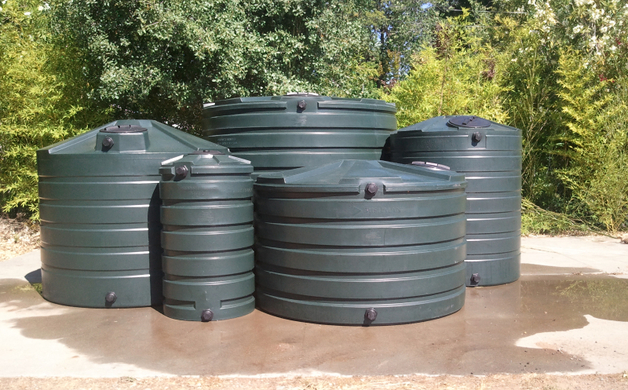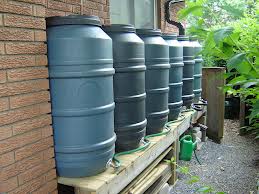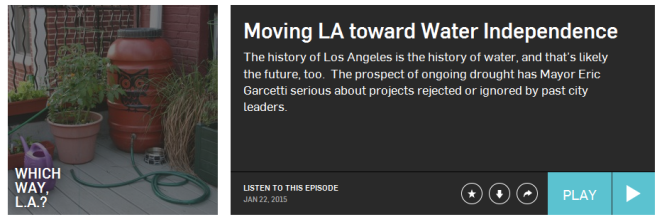Permaculture Green Practices: Difference between revisions
Siterunner (talk | contribs) No edit summary |
Siterunner (talk | contribs) No edit summary |
||
| Line 8: | Line 8: | ||
This interview, which features some astute words from our friend Andy Lipkis, is worth listening in on... In another interview, with Forbes Magazine in April 2015, Andy explains [http://www.forbes.com/sites/ashoka/2015/04/15/why-does-california-let-billions-of-gallons-of-fresh-water-flow-straight-into-the-ocean/ rain harvesting] is a key water saving tactic. | This interview, which features some astute words from our friend Andy Lipkis, is worth listening in on... In another interview, with Forbes Magazine in April 2015, Andy explains [http://www.forbes.com/sites/ashoka/2015/04/15/why-does-california-let-billions-of-gallons-of-fresh-water-flow-straight-into-the-ocean/ rain harvesting] is a key water saving tactic. | ||
Take a look at some of Andy's recommendations to share models that work | Take a look at some of Andy's recommendations to share models that work, enabling Southern California to use Australian green best practices for water savings and resilience in the face of historic drought and [http://www.latimes.com/local/lanow/la-me-ln-water-cut-targets-20150415-story.html#page=1mandatory recent mandatory water cuts throughout California.] | ||
Australians have | Australians have been confronting historic drought conditions and TreePeople's team are pointing out ways the Aussie "Land of Oz" have become [https://www.treepeople.org/sites/default/files/pdf/publications/TreePeople%20-%20Lessons%20from%20the%20land%20of%20Oz%20e-%20version.pdf among world leaders in water saving and smart water usage practices...] [http://blog.treepeople.org/environment/2013/10/learning-australias-drought-treepeople-draws-lessons Water conservation lessons from AU...] | ||
Of course, permaculture practices have roots in Aussie land in the person of [http://en.wikipedia.org/wiki/Bill_Mollison '''Bill Mollison.'''] | Of course, permaculture practices have roots in Aussie land in the person of [http://en.wikipedia.org/wiki/Bill_Mollison '''Bill Mollison.'''] | ||
Revision as of 16:01, 18 April 2015
Some thoughts on permaculture in these times:
"TreePeople in LA pushes for water savings programs"
Moving Los Angeles Toward Water Independence
This interview, which features some astute words from our friend Andy Lipkis, is worth listening in on... In another interview, with Forbes Magazine in April 2015, Andy explains rain harvesting is a key water saving tactic.
Take a look at some of Andy's recommendations to share models that work, enabling Southern California to use Australian green best practices for water savings and resilience in the face of historic drought and recent mandatory water cuts throughout California.
Australians have been confronting historic drought conditions and TreePeople's team are pointing out ways the Aussie "Land of Oz" have become among world leaders in water saving and smart water usage practices... Water conservation lessons from AU...
Of course, permaculture practices have roots in Aussie land in the person of Bill Mollison.
○
Climate change impacts, whether Australia or southwest US, are real and the water crisis brought on by drought in California continues to impact greatly. Look at what Altadena is doing in California as another model to capture and save water.
Their Foothill MWD water department collaborated with Hey!Tanks LA and TreePeople to develop a cistern rebate program. Kudos. Going the right direction in the foothills/headwaters of what used to be the LA River and the streams that in the olden days would replenish the LA basin aquifer and resupply (perma-supply in a cycle) the water being drawn out by LA's water wells (which are a considerable percentage of the Los Angeles water supply.)
There are ideas in the works to revitalize the LA River watershed but right now let's talk Cisterns.,
Water storage systems can make great sense, their time has come.
Rain barrels which catch roof-runoff can be very handy too in helping maintain hardy landscaping.
○ ○ ○ ○
BTW, speaking of water, there's a program in LA to replace the turf of water-hungry lawns with water-conserving perma-practice 'lawns', i.e., nextgen earth-scaping...
The program to switch is up to $3.75 a square foot that the LA Dept. of Water & Power will give homeowners to rip out their turf, that old-fashioned look, and replace it with hardy, drought-tolerant plants.
The US EPA is increasingly focusing on water conservation and water saving -- http://www.epa.gov/watersense/outdoor/landscaping_tips.html
Again, one more thing, listen in to Andy Lipkis and Los Angeles water activists on this KCRW radio interview, many ideas for water saving, reclaiming, conserving water, especially as climate change and drought conditions are impacting in historic ways, as California is now experiencing Which Way LA?
As California confronts its historic drought, the water savings ideas of permaculture practice become more and more important."Water's valuable in the Golden State!"
○
Also take a look at Nate Downey's recent PermaDesign book -- Harvest the Rain. Nate is one of the vital voices advancing permaculture practices in the US.
○
Global greening is happening, permaculture practices are a future to follow



